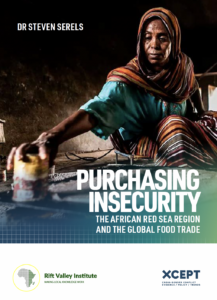The African Red Sea Region does not produce enough food to feed its own population. Sudan, Eritrea, Ethiopia, Djibouti and Somaliland (Somalia) are each reliant on imports to make up for domestic production shortfalls. This presents unresolved challenges to the food security of the region. The regional food system is currently in crisis because it is reliant on the international grain trade. The ongoing Russian invasion of Ukraine has disrupted normal patterns of global food production and distribution, and, in turn, contributed to a rapid rise in prices in the African Red Sea Region. This crisis will likely continue through at least 2023. Focusing on the late nineteenth and twentieth centuries, Purchasing Insecurity examines the historical origins of the region’s structural food insecurity, linking the current crisis to the rinderpest epizootic (1887 – 1889); destabilization of the rural economy; and accelerating process of urbanization that subsequently transformed the lives of people living in the African Red Sea Region.
This report is a product of the FCDO’s Cross-Border Conflict Evidence, Policy and Trends (XCEPT) programme, funded by UK aid from the UK government.



